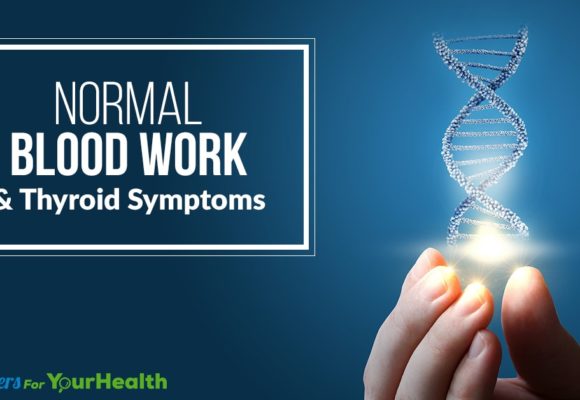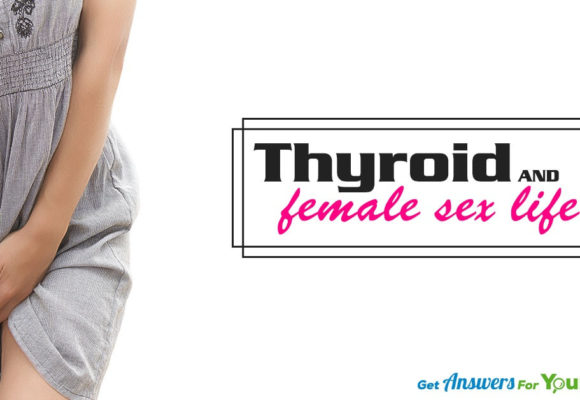1) Grab a FREE copy (Value $14.95) of one of my books Thyroid Symptom Overload
Just pay shipping $7.95 for any US orders. Or, if you want to pay full price plus shipping, order from Amazon :)
2) Take our Thyroid Quiz today and find out what "Thyroid Type" you have
This quiz will help you quickly discover where your symptoms are stemming from.
3) Join Our Thyroid Advocate Membership Site - Natural Thyroid Academy
FREE for a limited time. No credit card required.
4) Work with me and my team privately
Schedule your FREE 15 minute phone consultation and we can find out the best way to help you specifically.
The H-shaped, 15–25 grams of thyroid gland works so smoothly and effortlessly that we almost forget its existence in the first place, until it shows symptoms, such as hair fall, weight gain, disturbed menstrual cycle, slowed metabolism, irregular heartbeat, loss of concentration, etc.
Are They Are Your Food Choices Making Your Thyroid Symptoms Worse?
Thyroid is the hot topic (a little late, though). The growing concerns for thyroid’s significance and its role in maintaining our health are strong enough to surmount the myths associated with traditional TSH, T3, and T4 based thyroid health diagnosis. Today, people understand that there is more that contributes to thyroid health; therefore, they ask if there is an unambiguous thyroid lifestyle – or a food chart that specifies ‘eat this, skip that’.
Do You Even Need a Thyroid Diet?
Yes, you do! Among all recent diet plans, eating raw fruits and vegetables seems to be the easiest and most effective solution for probably all health problems, which is a myth. Not all raw vegetables and fruits you eat are suitable for your thyroid. Having said that, it is important to remember that a majority of obese people suffer from hypothyroidism, which means that when you eat raw vegetables and fruits (without understand the nutrients in them, except sugar) you may end up exasperating your thyroid.
A thyroid diet does not need to be rocket science. It has to be simple and straightforward based on the following rules.
- Understand the nutrients in the food you choose.
- Eliminate the foods containing nutrients that are harmful to your thyroid, such as copper and oxalic acid.
- Consuming raw vegetables and fruits might not be as useful for your thyroid hormone production as you believe it to be; the results may include aggravated thyroid health. It is ideal to steam or gently grill your vegetables before consuming.
In this guide, I will tell you ‘eat this, skip that’ (of course!), but I will also provide you with reasoning and explanation to understand how nutrients work in our body, so that you can assess the effectiveness of a nutrient on your thyroid without requiring any help. Here, we go!
Acid Reflux and Thyroid Health
At least 15–20% of the world population suffers from gastroesophageal reflux disease (GERD). Although GERD and thyroid health are not directly associated with each other, but a majority of the hypothyroidism, and some patients of hyperthyroidism experience GERD to some extent. Heartburn, retrosternal pain, and regurgitation are the common symptoms of GERD. A 2006 research study revealed that GERD and hiatus hernia could be the early symptoms of hypothyroidism.
Hashimoto’s disease is the most common cause of hypothyroidism, and patients of Hashimoto’s hypothyroidism could be linked with esophageal motility disorder, characterized by symptoms including heartburn, dysphagia, nausea, and vomiting. The symptoms are more common when gastric emptying activity is delayed. Disturbed thyroid motility, esophageal compressions, and autoimmune gastritis could trigger the gastrointestinal manifestations of thyroid.
Foods that Aggravate Acid Reflux
Antacids and cold milk provide a temporary solution of acid reflux and heartburn. If GERD is triggered by hypothyroidism, the GERD symptoms will vanish with the treatment of hypothyroidism. However, until the fulfillment of treatment, you need to avoid the foods that trigger acid reflux.
- Avoid acidic foods, including tomatoes, grapes, kiwi, avocado, grapefruit, oranges, etc.
- Avoid fried and spicy foods.
- Eliminate alcohol, nicotine and caffeine.
Gluten and Thyroid
But gluten is associated with Celiac disease only, right? To your surprise, a 2007 study explains the increased prevalence of Celiac Disease in patients of autoimmune disorders, particularly autoimmune thyroid disease. Celiac Disease is prevalent in 2–5% patients of autoimmune thyroid disorder; the autoimmune disorders are conversely prevalent in patients of Celiac Disease. Eliminating gluten from the diet, or bringing it down to 20% at minimum, could help improve your thyroid condition. Gluten, eliminated from the diet, also helps reduce the probability of diabetes in thyroid patients. An excerpt from a 2013 study reads:
Hyper- and hypothyroidism have been associated with insulin resistance, which has been reported to be the major cause of impaired glucose metabolism in T2DM. The state-of-art evidence suggests a pivotal role of insulin resistance in underlining the relation between T2DM and thyroid dysfunction. A plethora of preclinical, molecular, and clinical studies have evidenced an undeniable role of thyroid malfunctioning as a comorbid disorder of Type 2 diabetes mellitus (T2DM).
The common sources of gluten include wheat, rye, spelt, and kamut grains. Replace gluten-rich grains with whole grains or chickpea flour. Avoid white flour and confectionary items at all costs.
What about the Cruciferous Vegetables?
The hype might have reached you.
Cruciferous vegetables include rutabaga, collard greens, bok choy, Brussels sprouts, watercress, radish, maca root, broccoli, kale, arugula, cabbage, cauliflower, and turnip. These are rich in goitrogenic substances, which interfere with the iodine uptake of thyroid gland and hence, reduce the production of thyroid hormones. The consumption of cruciferous vegetables is a little tricky to understand. Let’s break it down here.
Raw
Many cruciferous vegetables are eaten raw, either as salads or for adding taste to your meals. In raw form, the cruciferous vegetables have highest ratio of goitrogens, which interfere with thyroid gland’s performance. Simply put, you should never eat cruciferous vegetables in raw form.
Most of the green vegetables, including chives, beet greens, purslane, spinach, chard, and parsley contain oxalic acid. When consumed raw, oxalic acid blocks the absorption of iron and calcium, and may cause kidney stones. If you are looking for an iron boost with spinach salad, you may not achieve it because iron will not be absorbed in the body. The right way is to boil or steam green vegetables and drain the water.
Aside cruciferous vegetables, eating raw alfalfa, sweet potatoes, edible mushrooms, and potatoes can also cause disturbed digestion, aggravated thyroid, heat sensitivity, and absorption of agaratine, a carcinogenic toxin, in our body.
Fermented
Kimchi is one of the most consumed fermented form of cruciferous vegetables. Sauerkraut is also a popular fermented cruciferous vegetable, but since it is consumed in small quantities, its effect can be balanced by increasing the intake of iodine. However, fermentation does not affect the goitrogenic substances in cruciferous vegetables; therefore, it is ideal to avoid eating them fermented.
Cooked / Steamed / Grilled
Cooked, steam or grilled cruciferous vegetables are safe to consume. When steaming or cooking, make sure to drain the vegetable’s water. The vegetables should be grilled long enough to evaporate their own water.
When cruciferous vegetables are juiced, the fiber cells are broken down and are rarely absorbed in the body, which is why, juicing the vegetables may disturb the gut. It is ideal to cook the vegetables in butter as the fat in butter eases the absorption of minerals and vitamins in the gut.
The seeds of cruciferous vegetables may contain goitrogens, which should be removed before cooking them.
The Role of Iodine
Iodine has served as the primary culprit in altering thyroid health condition. Strange, as it may sound, iodine can trigger or cure hypothyroidism. The daily safe limit of iodine for a healthy adult is 1,100 mg. 2–4 teaspoons of iodized per day can help treat iodine. However, you also need to look after other foods you consume in a day. For example, if you consume 4 teaspoons of iodized salt, but you also consume foods containing iodine suppressants, chances are that very little iodine will be absorbed in your thyroid glands. Similarly, excess of iodine can also trigger or aggravate hypothyroidism. Iodine consumption needs to be balanced with other food items for its healthy absorption.
Sea salt is comparatively a richer and better source of iodine than table salt, as it also contains several other minerals required to maintain optimal thyroid health. Mix ¼ teaspoon of sea salt in a liter of drinking water to keep your thyroid working efficiently.
Foods Containing Iodine Suppressants: Thiocyanates
The importance of iodine for effortless thyroid functioning is not unknown to us. However, various ingredients suppress the absorption of iodine in thyroid gland, hence suppressing its activity. Thiocyanates compete with iodine molecules to absorb into thyroid glands. They also weaken thyroid peroxidase, an enzyme required to stimulate iodine absorption in thyroid glands. Iodine supplementation can help reduce the impact of thiocyanates, but an ideal approach is to avoid foods containing thiocyanates or minimize the consumption at least. Foods that contain thiocyanates include:
- Lima beans
- Sweet potatoes
- Flax seeds
- Bamboo shoots
- Corn
- Cassava
Various cruciferous vegetables also contain thiocyanates in non-living form i.e. when they are cut from the plant. These vegetables include:
- Bok choy
- Brussels sprouts
- Chinese broccoli
- Cabbage
- Broccolini
- Arugula
- Kale
- Horseradish
- Chinese cabbage
- Canola
- Collard greens
- Choy sum
- Mustard greens
- Rapini
- Mizuna
- Kohlrabi
- Mustard seeds
- Rutabagas
- Wasabi
- Turnips
- Radish
The Flavonoid Family
Not all flavonoids are bad for your thyroid. However, the consumption of bad flavonoids can horribly aggravate your poor thyroid health. Have a look!
Soy Flavonoids
But they are healthy, no? Not for hypothyroidism! The effect of soy flavonoids is similar to thiocyanates i.e. they suppress thyroid peroxidase and reduce iodine absorption in thyroid glands. Worse, soy isoflavones are indestructible with cooking, boiling, steaming, or grilling. The consumptions of 2 mg soy isoflavones on a daily basis can push borderline hypothyroidism to full-blown hypothyroidism. Also, babies and infants who are fed soy-formula food are more vulnerable to develop thyroid health related issues later in life.
Grain Flavonoids and Quercetin (with Peers)
Apigenin is a strong iodine-suppressant, found in millets. It also suppresses the activity of thyroid peroxidase. Millet flavonoids, including apigenin, interfere with the binding of thyroid hormones and protein molecules in the bloodstream, which also affects the immune system health. Apigenin is also found in red wine, beer, onions, parsley, citrus fruit, chamomile, and wheat sprouts. Unfortunately, millet flavonoids are not destructed during cooking, steaming, or grilling.
Quercetin, rutin, and kaempferol are flavonoids found in tea, citrus fruits, capers, cranberries, onions, blueberries, apples, grapes, apricots, red wine, gingko biloba, asparagus, and buckwheat. They suppress the activity of thyroid peroxidase, and interfere with the activity of hepatic deiodinase, which is an enzyme secreted by liver to activate thyroid hormones. Boiling or cooking can destroy at least 30% of quercetin, rutin, and kaempferol.
Thiodiazole Copper
Available as Thiodiazole fungicide in China, Thiodiazole copper has been found to inhibit the thyroid hormone production in rats in a study conducted by Jie Wang, Le Zhang, et al. The weight of liver and kidney also decreased in the female rats. Thiodiazole fungicide is often used in food additives. When doing groceries, make sure to watch out for this specific element.
Lipoic Acid
A natural fat, lipoic acid is readily found in organ meats, such as kidneys and liver it does not affect thyroid health in limited quantities (provided that you balance it out with iodine), but excessive lipoic acid suppresses thyroid activity, as well as it reduces the effectiveness of thyroid supplements.
Industrial Seed Oils
To be honest, we all know these industrial seed oils are bad for our health. These oils include sunflower oil, corn oil, soybean oil, cottonseed oil, grape seed oil, canola oil, and rice bran oil. The problem does not exist in the oils, but in the process of their production. During the extraction process, the chemical solvents oxidize the polyunsaturated fats in the vegetable oils, making them potent to cause inflammation. Coconut oil and olive oil have proven to be the most effective oils for hypo and hyperthyroidism. Grassfed butter is also suitable.
Selenium and magnesium are among the primary thyroid players. Again, overdosing is harmful. You need only 200 gm selenium every day to maintain a healthy thyroid or improve the condition of unhealthy thyroid.
For any further assistance, understanding or to find answers of your questions, feel free to get in touch!








